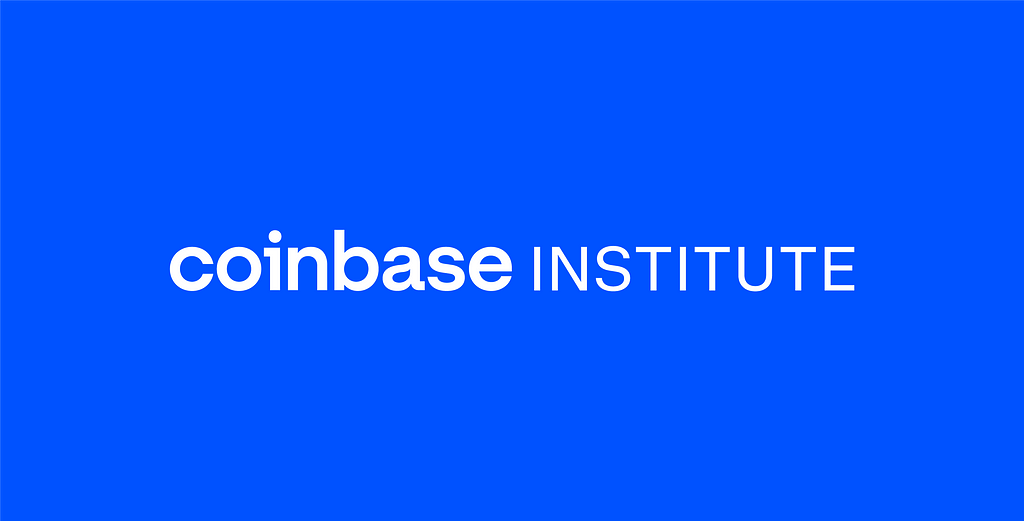Introducing the Coinbase Institute: Advancing the policy debate around crypto and the future of…
Introducing the Coinbase Institute: Advancing the policy debate around crypto and the future of web3
By: Hermine Wong, Director of the Coinbase Institute

Tl;dr: Today signals the launch of the Coinbase Institute, a global crypto-native think tank. Our mission is to accelerate rigorous, novel research, and to bring together the best minds across disciplines to fuel progress on decentralization, web3, and the future of finance.
Today, we’re launching the Coinbase Institute — a global crypto-native think tank grounded in evidence-based research. Our mission is to accelerate rigorous, novel research, and to bring together the best minds across disciplines to fuel progress on decentralization, web3, and the future of finance. Our work will cut across many disciplines and provide expert analysis and insights about what’s happening in the global cryptoeconomy.
The Coinbase Institute’s mission will be anchored around four core pillars of work:
- Conducting and publishing rigorous, cutting-edge crypto & web3 research;
- Convening collaborative discussions with thought leaders, academics, policymakers, and the crypto community;
- Forging partnerships with academic institutions and think tanks to accelerate early-stage research and technical innovation;
- Building an interdisciplinary in-house team to advance public knowledge and awareness of crypto and web3.
What’s launching today?
- Our Coinbase Primers series, starting with Crypto and the Climate. Our primers are designed to unpack high-profile concepts around crypto and web3. News in this space moves quickly — it can be challenging to understand the technology and data underlying the headlines. Our primers will break through the noise to provide clear explanations of key issues along with the latest numbers and analysis.
- Our first Coinbase Institute Monthly Insights Report on digital asset markets. This month, we focus on providing a real-time comparative analysis of market movements in the cryptoeconomy and traditional finance. Each month, we’ll provide real-time trends and insights on particular themes of the cryptoeconomy, and over time, we will return to these themes to reflect the changing nature of the issues we cover.
- Our first academic partnership with the University of Michigan, with whom we will kick off the first comprehensive annual survey of U.S. households’ adoption of and sentiments toward crypto. The University of Michigan Survey Research Center conducts some of the most widely cited and influential studies in the world, including survey work for the U.S. Census Bureau and the Department of Defense.
Leadership & Advisory Board
Our Leadership Team:
- Hermine Wong is the Director of the Coinbase Institute and a Director of Policy at Coinbase. Previously, Hermine served in the U.S. Securities and Exchange Commission at their Division of Economic and Risk Analysis. She also worked at the Office of Management and Budget’s Office of Information and Regulatory Affairs (OIRA) within the Executive Office of the President, and at the U.S. Department of State.
- Dr. Cesare Fracassi joins us as our first Director of Economic Research and Chief Economist of the Coinbase Institute. Cesare is also a member of the State of Texas Work Group on Blockchain Matters. Before joining Coinbase, he was an associate professor of finance at the McCombs School of Business at the University of Texas at Austin, where he was the Director of the Blockchain Initiative and the Fintech Research Lab.
Our Advisory Board:
- Christian Catalini, founder of the MIT Cryptoeconomics Lab, Research Scientist at the MIT Sloan School, and co-creator of Diem (formerly Libra). His research focuses on crypto and blockchain technology.
- Marco Di Maggio, faculty member in the Finance Unit at Harvard Business School and a faculty research fellow at the National Bureau of Economic Research. His research focuses on financial intermediation, with a particular interest in the disruption of financial markets by new technologies.
- Vikramaditya S. Khanna, Professor of Law at the University of Michigan William W. Cook Law School and Research Member of the European Corporate Governance Institute. His research includes corporate and securities laws, global business and law practice, law and technology, and law and economics.
- Nagpurnanand Prabhala, Francis J. Carey, Jr. Endowed Professor in Business and Professor of Finance at the Johns Hopkins University Carey School of Business. His primary research interests are in empirical corporate finance and financial intermediation.
- Manju Puri, J.B. Fuqua Professor of Finance at the Duke University Fuqua School of Business. She is an authority in the field of empirical corporate finance, with particular expertise in financial intermediation.
What’s next?
We’re still at the early stages of the cryptoeconomy’s evolution, and it’s here to stay. In the future, the Coinbase Institute plans to publish more original research papers and to convene thoughtful discussions around our four pillars. Despite the recent market noise, comprehensive data and analysis about crypto’s adoption over time will provide the public, policymakers, regulators, and academics with a better understanding of crypto’s diversity and interconnection to the overall economy.
In the meantime, do you have feedback on our work or new topics to suggest? Visit us at our website to join the discussion, explore our research, and learn more about our advisors, partnerships, and events to come. Follow @coinbase and join the conversation.
Introducing the Coinbase Institute: Advancing the policy debate around crypto and the future of… was originally published in The Coinbase Blog on Medium, where people are continuing the conversation by highlighting and responding to this story.
18 May 2022 16:59